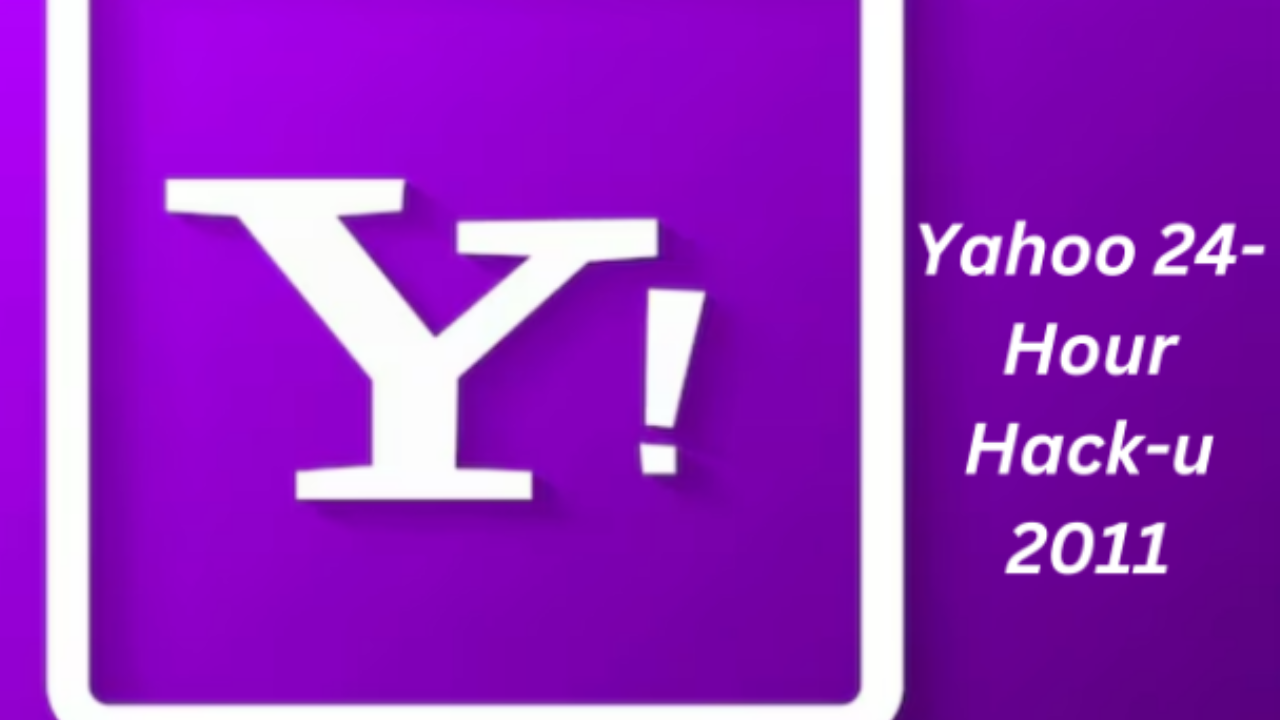Introduction
In 2011, UCLA became the epicenter of technological innovation as it hosted the highly anticipated Yahoo 24-hour Hack-U 2011. This event, part of Yahoo’s Hack University (Hack-U) series, united the brightest students, developers, and tech enthusiasts from around the country. The challenge? To leverage creativity and technology to develop impactful solutions in just 24 hours.
The Yahoo 24-hour Hack-U 2011 at UCLA was more than just a coding competition. It was a celebration of problem-solving, teamwork, and innovation under tight time constraints. Participants not only showcased their technical prowess but also had the chance to transform their ideas into real-world applications. For many, this event marked a significant step in their journey into the tech industry, and it played a pivotal role in fueling the hackathon culture in universities nationwide.
In this blog, we will explore the highlights of the Yahoo 24-hour Hack-U 2011, the breakthrough innovations that emerged, the challenges teams faced, and the long-lasting impact the event had on the tech community.
What Was the Yahoo 24-Hour Hack-U 2011?
The Yahoo 24-hour Hack-U 2011 was part of a series of university-based hackathons designed by Yahoo to spark creativity and foster innovation. These hackathons provided students with access to Yahoo’s powerful open APIs and tools, encouraging them to create functional, unique, and impactful tech solutions in a very limited time frame.
Held at prestigious universities across the country, Yahoo 24-hour Hack-U 2011 at UCLA stood out as one of the most exciting and memorable tech events of that year. Students worked in teams, racing against the clock to develop innovative projects that integrated Yahoo’s cutting-edge technology, all while thinking creatively to solve real-world problems.
Pre-Event Buzz and Preparation
The buildup to Yahoo’s 24-hour Hack-U 2011 event at UCLA was filled with excitement.Students from diverse fields such as computer science, engineering, and design eagerly prepared for the event. Teams formed early, and brainstorming sessions were in full swing as participants refined their ideas and polished their skills in anticipation of the big day.
Yahoo’s involvement in the hackathon added an extra layer of excitement. With the chance to work with Yahoo’s suite of tools, students viewed the hackathon as not just an opportunity to build something extraordinary but also a chance to impress potential recruiters and industry leaders.For many, it was a once-in-a-lifetime chance to showcase their skills on a national platform.
The Hackathon Format: Intense and Collaborative
The Yahoo 24-hour Hack-U 2011 format was simple yet intense. After a brief introduction to Yahoo’s APIs and an overview of the competition rules, teams of two to five students were unleashed to begin their 24-hour coding marathon. With the clock ticking, participants worked tirelessly, creating functional projects from scratch within the limited timeframe.
Throughout the event, Yahoo mentors were available to assist with technical guidance and offer valuable advice. These mentors played a crucial role in helping teams navigate the complexities of their projects. Additionally, Yahoo provided ample snacks, energy drinks, and coffee to keep the participants energized and focused during the intense coding session.
Harnessing the Power of Yahoo’s Open APIs
A key feature of the Yahoo 24-hour Hack-U 2011 at UCLA was the access granted to Yahoo’s powerful open APIs. These APIs allowed participants to tap into Yahoo’s vast ecosystem of data and services, empowering them to build sophisticated applications in record time. From integrating live weather updates to developing customized search features or utilizing Yahoo’s finance tools, the possibilities for innovation were endless.
By leveraging Yahoo’s open APIs, participants were able to focus on the creative aspects of their projects, without the need to build foundational infrastructure from scratch. This level of access made it possible for students to develop high-functioning, unique applications that truly pushed the boundaries of what was possible within the 24-hour time limit.
Innovation Highlights: Real-World Solutions Created in 24 Hours
The Yahoo 24-hour Hack-U 2011 at UCLA was a showcase of ingenuity and resourcefulness. Teams tackled a wide range of challenges, creating solutions that addressed real-world problems in novel ways. The pressure of the ticking clock fueled innovation, pushing participants to think outside the box and deliver solutions that were both practical and impactful.
From mobile apps to web-based tools, the projects presented at Yahoo 24-hour Hack-U 2011 reflected the creativity and technical skills of the participants. Many of these projects had the potential to make a lasting impact on various industries, showing just how powerful and transformative a hackathon can be.
The Power of Collaboration and Teamwork
At Yahoo 24-hour Hack-U 2011, teamwork was the cornerstone of success. Students came from diverse academic backgrounds, bringing different skill sets to the table. Designers worked alongside developers, and engineers collaborated with programmers, each contributing their expertise to create innovative solutions. The format of the hackathon demanded flexibility, adaptability, and the ability to think on one’s feet, as teams had to pivot and adjust their projects to overcome unforeseen challenges.
Under the time crunch, many teams found themselves needing to rework their ideas midway through the event, either due to technical setbacks or evolving project requirements. This flexibility pushed participants to strengthen their collaboration, leading to truly impressive outcomes that demonstrated how effective teamwork can turn challenges into opportunities.
Standout Innovations from Yahoo 24-Hour Hack-U 2011
Despite the time constraints, the Yahoo 24-hour Hack-U 2011 at UCLA produced some truly groundbreaking innovations. Students harnessed Yahoo’s powerful open APIs and integrated them into their projects, creating applications that solved real-world problems in novel ways. The event was a hotbed for creativity, as each team brought their own vision and expertise to the table. Below are just a few examples of the standout innovations that emerged:
Smart Commute App: A team developed an innovative commuting app that used Yahoo’s weather and map APIs to provide real-time traffic data, public transportation schedules, and personalized route recommendations. By optimizing for user location and traffic conditions, the app aimed to streamline daily commutes and reduce travel time.
Collaborative Study Platform: Another group created a platform that connected students based on shared classes and interests, making it easier for them to form study groups. The app integrated Yahoo’s social and search APIs, allowing users to find study partners, schedule sessions, and share resources.
Eco-Friendly Reminder System: A team focused on sustainability with an app that encouraged users to reduce their environmental impact. It provided reminders to complete eco-friendly tasks such as recycling, conserving water, and turning off lights. Additionally, by utilizing Yahoo’s finance APIs, the app also highlighted how these eco-friendly actions could save users money.
These projects represented just a fraction of the innovations that emerged from the hackathon. Each team’s approach to solving problems was unique, but all shared a common goal of using technology to create meaningful, user-centric applications.
Challenges and Overcoming Adversity
Like any high-pressure event, the Yahoo 24-hour Hack-U 2011 at UCLA posed several challenges for participants. The tight 24-hour deadline was one of the most significant hurdles, forcing students to balance quality and speed. Many participants, especially first-time hackathon attendees, found themselves racing against the clock to complete their projects.
One of the most common struggles involved learning how to navigate and integrate Yahoo’s open APIs. These tools provided a wealth of data and resources, but they also had a steep learning curve. Teams had to quickly familiarize themselves with these APIs and incorporate them into their projects without wasting precious time.
Time management was another key challenge. As the event wore on, some teams struggled to maintain momentum, with many working late into the night to meet the final deadline. Yet, despite these obstacles, the spirit of collaboration and camaraderie helped teams push through the exhaustion and deliver their projects.
Final Presentations and Judging: A Showcase of Talent
After 24 hours of intense coding, the final presentations marked the culmination of Yahoo 24-hour Hack-U 2011 at UCLA. Teams presented their projects to a panel of judges, which included Yahoo executives, industry experts, and UCLA professors. Each team had a limited time to explain their project, showcase how they integrated Yahoo’s APIs, and demonstrate their application’s functionality.
The judges assessed the projects on their creativity, technical execution, and practical potential.While only a few teams received prizes, the true value of the hackathon lay in the experience itself. Every participant had the opportunity to present their work to an influential audience, gaining valuable exposure and feedback that could pave the way for future opportunities in the tech world.
The Lasting Effects of Yahoo’s 24-Hour Hackathon in 2011
For many participants, Yahoo 24-hour Hack-U 2011 at UCLA was a transformative experience. It not only allowed them to develop new skills but also provided an invaluable platform for showcasing their talents in front of potential recruiters and industry leaders. Some teams even went on to refine their projects and launch startups based on their hackathon ideas, further solidifying the event’s legacy as a launchpad for future tech entrepreneurs.
The hackathon also had a lasting impact on the UCLA tech community, fueling a culture of innovation, collaboration, and entrepreneurship. It served as an example of how hackathons can be a powerful tool for fostering creativity and connecting students with the broader tech ecosystem.
Conclusion
The 2011 Yahoo 24-Hour Hack-U event at UCLA showcased an impressive blend of innovation, creativity, and teamwork.Over 24 intense hours, students harnessed their technical skills to create impactful solutions, all while overcoming the challenges posed by time constraints and complex APIs. By integrating Yahoo’s open tools and collaborating across disciplines, participants pushed the boundaries of what was possible, creating groundbreaking applications that addressed real-world problems. This event not only showcased the incredible talent within the hackathon community but also marked a turning point in the rise of hackathons as a key component of the tech industry. The lasting influence of Yahoo 24-Hour Hack-U 2011 is seen in the continued growth of hackathon culture, fostering innovation and helping to shape the future of technology.
FAQs
Q: What was the Yahoo 24-Hour Hack-U 2011 at UCLA?
A: The Yahoo 24-Hour Hack-U 2011 at UCLA was a university-based hackathon event where students, developers, and tech enthusiasts collaborated in teams to create innovative solutions using Yahoo’s open APIs. The event lasted for 24 hours, challenging participants to develop functional applications within a tight timeframe.
Q: What kind of projects were developed during the Yahoo 24-Hour Hack-U 2011?
A: Teams developed a wide range of projects, including mobile apps, web-based tools, and platforms. Notable innovations included a smart commute app, a collaborative study platform, and an eco-friendly reminder system. These projects showcased how technology could solve real-world problems in creative ways.
Q: What were the main challenges participants faced during the event?
A: Participants faced several challenges, including managing time effectively, learning to use Yahoo’s open APIs under time constraints, and handling technical setbacks. Despite these obstacles, the collaborative nature of the event helped teams push through to complete their projects.
Q: How did the Yahoo 24-Hour Hack-U 2011 impact the participants?
A: The event provided participants with valuable experience, exposure, and feedback from industry leaders and recruiters. Many teams were able to refine their ideas and even launch startups based on their hackathon projects, underscoring the long-term impact of the event on their careers.
Q: How did Yahoo’s open APIs contribute to the hackathon?
A: Yahoo’s open APIs were central to the hackathon, providing participants with access to a range of powerful tools and data. These APIs enabled teams to focus on building innovative solutions without the need to develop foundational infrastructure from scratch, making it easier to create functional and impactful applications in a short period.
Stay in touch for more updates and alerts visit: Shootingg!



